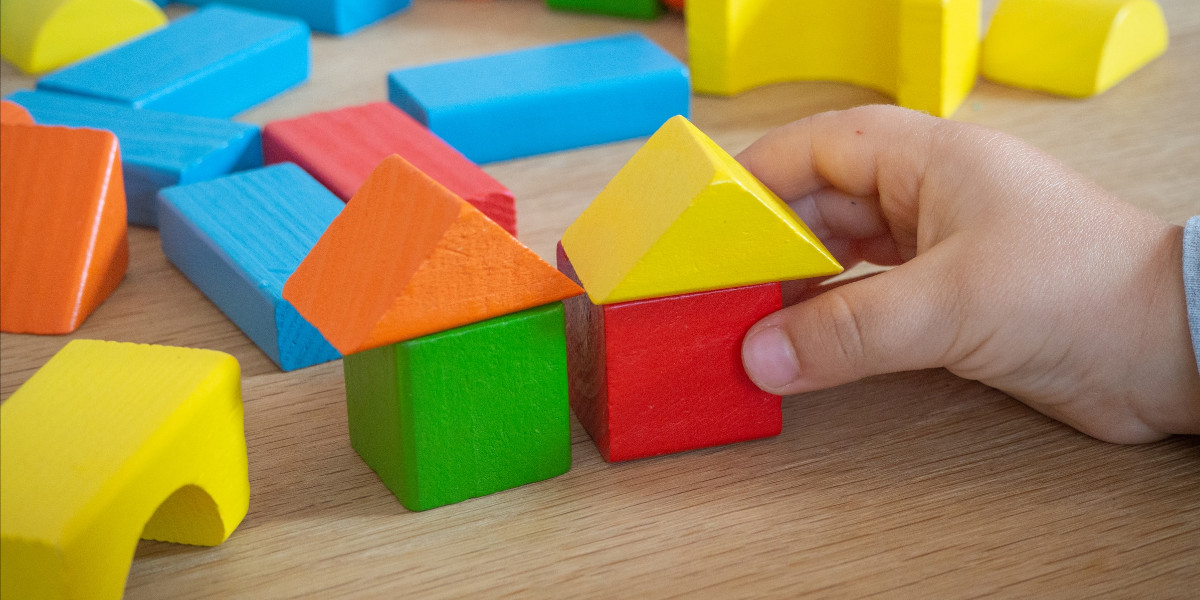
The Power of Play
It can be difficult for parents to keep up with the current trends, new findings, and research guidelines for developing children. One of the only things that remains consistent is the concept of the power of play. The American Academy of Pediatrics suggests that developmentally appropriate play with parents and peers is a singular opportunity to promote the social-emotional, cognitive, language, and self-regulation skills that build executive function as well as activities that benefit others (also known as prosocial behaviors).
Play is an essential need that all children have, a predictor of healthy brain development, and a blueprint for healthy neurodevelopment. Additionally, in his Pediatrics article The Power of Play, Dr. Michael Yogman explains that “when play and safe, stable, nurturing relationships are missing in a child’s life, toxic stress can disrupt the development of executive function… in the presence of childhood adversity, play becomes even more important.”
What Can Parents Do?
Developmentally speaking, there are some milestones that children go through as they play and interact with their caregivers and environment. Here is a condensed version of different forms of play that can positively impact a developing child’s brain:
Birth – 6 months
- Playful learning can start with a baby's first smile. Responding with a smile of your own is a form of play that also teaches a baby a critical social-emotional skill: "You can get my attention and a smile from me anytime you want―just by smiling yourself."
- Imitate your baby's coos and babbles and have back-and-forth "conversations “using your baby's sounds as a prompt.
- Show your baby interesting objects, such as brightly colored toys, and let them bring safe objects to their mouth to explore new textures.
7-12 months
- Make sure your baby has a safe environment to crawl and explore.
- Give your baby opportunities to learn that their actions have effects—for example, when they drop a toy, and it falls to the ground. Put a few toys within reach of your baby so they can take toys out and play with them.
- Play peek-a-boo.
1-3 years
- When choosing child care and preschools, look for those that include unstructured playtime. Playful learning, where children take the lead and follow their own curiosity, should be the main focus of high-quality early childhood education.
- Give your child opportunities to play with peers.
- Provide opportunities for make-believe play.
- Sing songs and play rhythms.
4-6 years
- Provide opportunities for your child to sing, dance and draw.
- Give your child time and space to act out imaginary scenes, roles and activities. You can provide dress-up clothes and props but allow play to be unstructured.
- Allow your child to move between make-believe games and reality.
- Balance media use and screen time to with "real world" activities.
(You can read more about these activities from healthychildren.org here!)
Play Therapy
It can be overwhelming for parents to grasp and understand what milestones their children are going through and why. Within the last few decades, child play therapists have been on the rise to actively aid in children’s development on the emotional, cognitive, and neurophysiological scales. Esteemed play therapist Dr. Garry Landreth spent his career educating future play therapists about the power of play. Essentially, Dr. Landreth has written a guide for therapists and parents that can help grasp the power of play. If you are interested in learning more about Dr. Landreth’s work, I encourage you to read his 2012 book, Play Therapy: The Art of the Relationship. In his work, he highlights how children are not miniature adults. His work can also aid parents into gaining insight into how a child perceives the world around them and why play is their language.
Would you like to know more about the power of play with your developing children to address social or emotional issues? At Lifeologie Counseling Midlothian, I use play therapy with children and also address anxiety, depression, and life transitions in adolescents and young adults. Call (214) 530-2335 to make an appointment with me, request an appointment online, or find a Lifeologie Counseling play therapist near you.

About Maddison Stahler
Maddison Stahler is a former Master's Level Intern at Lifeologie Counseling Midlothian. She received her BS in Speech Language Pathology from Texas Christian University and her MS in Clinical Mental Health Counseling from Southern Methodist University.
Meet Me



